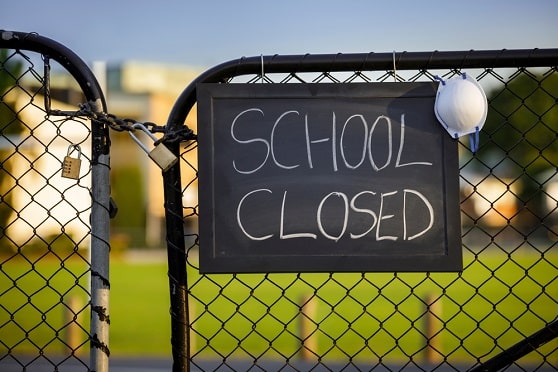Keeping schools closed in view of COVID-19 not justified: World Bank education director


World Bank’s global education director Jaime Saavendra has said that keeping schools closed in the wake of the COVID-19 pandemic was not justified, and that school closures should be the last resort.
Saavendra’s team has been tracking the impact of COVID-19 on the education sector and has found no evidence of school reopenings causing a spike in cases of SARS-CoV-2 infection.
Saavendra also asserted that it does not make sense from a public policy perspective to wait till children are vaccinated before reopening schools as there is “no science” behind it.
“There is no relation between opening schools and the spread of Coronavirus. There is no evidence linking the two and there is no justification now to keep the schools closed,” Saavedra said in an interview from Washington adding, “It does not make sense to keep restaurants, bars and shopping malls open and keep schools closed. There is no excuse.”
According to various simulations by the World Bank, health risks for children if schools are opened are low and the cost of the closure is extremely high.
“During 2020, we were navigating in a sea of ignorance. We just did not know what is the best way of combating the pandemic and the immediate reaction of most countries in the world was, let’s close schools,” he said.
“Many countries have also had waves when schools were closed, so obviously there has been no role of schools in some of the spikes,” stressed Saavendra, adding that severe symptoms of infection in children were rarely reported.
Talking about the impact of school closures owing to the pandemic in India, Saavedra said that the impact is more severe than previously thought and the learning poverty – being unable to read and understand simple texts by the age of 10 years – is likely to increase much more than anticipated.
“The learning poverty in India is expected to increase from 55% to 70% due to learning loss and more out-of-school children. In countries like India where the inequalities in education were already prevalent before the pandemic and the learning poverty levels were already gigantic, there is a lot at stake. Nearly two years later, schools remain closed for millions of children,” he said.
The potential increase of learning poverty might have a devastating impact on future productivity, earnings and well-being for this generation of children and youth, their families and the world’s economies, added Saavendra.
Rationalising the curriculum, reorganising the academic calendar, preparing the teachers for the huge task ahead are among the suggestions that the World Bank has made to reduce long-term learning losses caused by closure of schools during the pandemic.
A 2020 report by the World Bank Education, titled ‘Beaten or Broken? Informality and COVID-19 in South Asia’, had predicted that the prolonged closure of schools due to the COVID-19 pandemic in India may cause a loss of over USD 400 billion in the country’s future earnings.